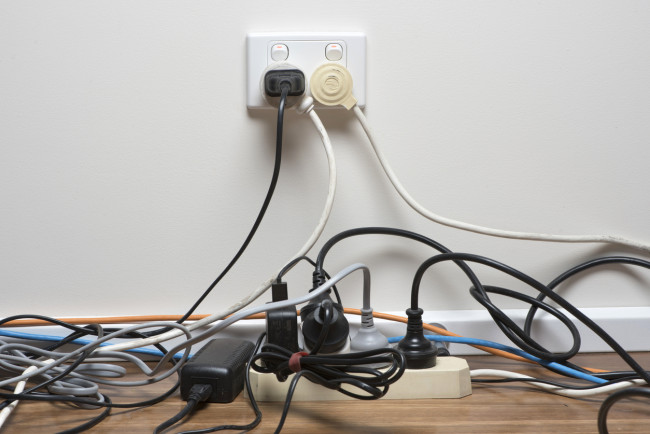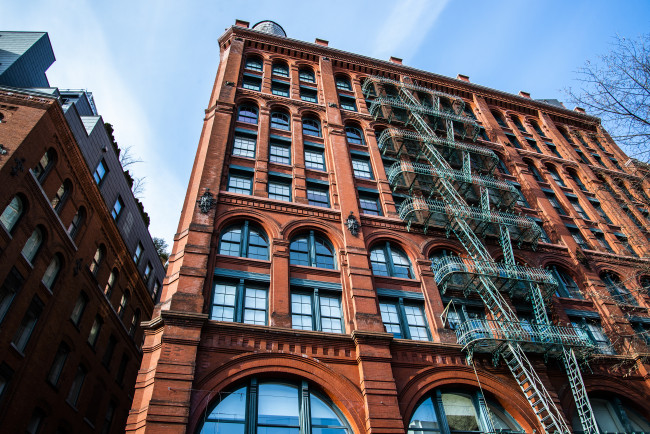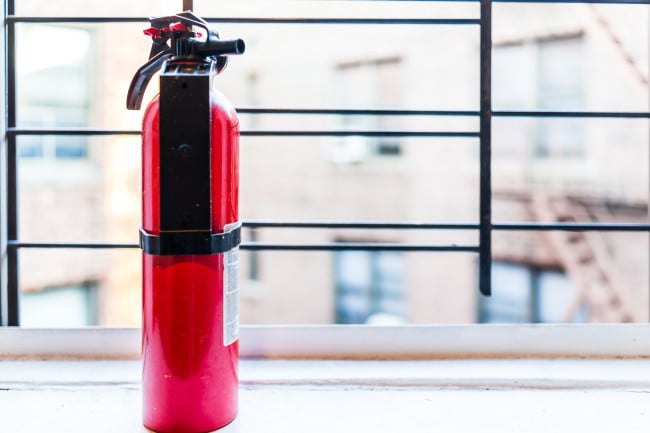As coronavirus fears grow, questions loom for NYC apartment buildings [UPDATED]

It’s hard to imagine what a “severe” disruption to New Yorkers’ daily lives would look like as coronavirus cases start to appear here.
iStock
Two months after the first cases of novel coronavirus appeared in the city of Wuhan in China’s Hubei province, there is increased concern the disease will become a pandemic, spreading worldwide and appearing in U.S. communities “without a known source of exposure.” The likelihood of “community spread” is now not a question of if, but when, according to the Center for Disease Control and Prevention (CDC) and that presents questions for NYC apartment buildings.
Editor's note: This story was updated with new information on March 4, 2020. Click here for more coronavirus coverage.
The risk to New Yorkers of contracting this novel coronavirus is still low, according to the Department of Health. Responding to the CDC update, Mayor Bill de Blasio says New Yorkers “shouldn’t take the risk of infection lightly.” The illness causes a fever, cough, and shortness of breath and can range from mild symptoms to severe illness and death.
It’s hard to imagine what a “severe” disruption to New Yorkers’ daily lives would look like as cases of Covid-19 start to appear here—canceled schools and events, and a shift to telecommuting are some of the possibilities—but here are some of the questions you’re likely to be asking about what may change inside your apartment building.
Are buildings preparing for additional cleaning? Are staff going to be wearing masks?
Face masks aren’t recommended for people who are healthy (most are apparently too loose to prevent inhalation of the virus) unless you are caring for others with symptoms, but CDC advice is that they should be worn by people with symptoms to prevent others from being infected. Daniel Wollman, CEO of property management firm Gumley Haft, says he has been ordering masks, gloves and routine cleaning supplies like mops and sponges but at this point hasn’t been given guidance from government agencies about recommended supplies or procedures.
Current prevention advice is to clean and disinfect frequently touched objects with a regular household cleaning spray or wipe. The CDC also points out that while it may be possible to get Covid-19 by touching a surface that has the virus on it and then touching your face “this is not thought to be the main way the virus spreads.”
The main transmission is thought to be person to person between people in close contact via respiratory droplets produced when an infected person coughs or sneezes.
In an advisory memo circulated on March 4th to residents (click here to read in full), Manhattan-based property manager Solstice Residential Group says it has instructed building employees to install hand sanitizer stands in all amenity spaces; increase cleaning specifically of door handles and elevator buttons; and be vigilant when it comes to reporting anyone with symptoms.
Your home is your emotional and physical sanctuary, and right now, it’s probably doing double or even triple duty. With Zoom meetings, home schooling, virtual happy hours, and other distractions, accidents can happen, like cooking fires, sink overflows, floods from broken dishwashers and other mishaps that could cost you thousands. Now more than ever, protecting your home, possessions and finances with insurance is an affordable necessity, not a luxury. Click here for a quick quote from the apartment insurance experts at Gotham Brokerage. >>
What happens if someone in your building is affected?
Current advice from the city is that anyone with flu-like symptoms who has a connection to any country affected by the virus should seek medical attention immediately, if necessary by calling 311.
NYC has 1,200 hospital beds that can be made available immediately for patients testing positive for the virus so the assumption is that anyone with the virus will be isolated in hospital.
Wollman says there isn’t yet clear guidance from the CDC or Department of Health about whether an infected person will stay quarantined in an apartment or come out of the building and be quarantined in a public health facility.
“There are going to be certain rights these people have also and they are going to have to be balanced with what is going to be right for the rest of the people who live in the building. It’s going to be very complicated. We don’t know what some of those steps are going be,” he says.
Solstice Residential Group is asking residents to consider immediately alerting the superintendent and others they have come in contact with if they feel sick, "particularly if you have used any of the building’s common amenity spaces."
Will the Department of Health send in professional cleaners to affected buildings?
In the event of a Covid-19 infection in a building, Wollman assumes there will be instructions from the Department of Health.
“I’m guessing they are not going to just leave it up to us. It is of such significance and seriousness that people who are trained will need to be employed and retained,” he says.
Keep in mind that symptoms of infection can be mild, and that some spread might be possible before people show symptoms. Therefore it may turn out that minimizing transmission within a building will also depend on new routines and policies like frequent disinfection of door handles and elevator buttons and limiting whole-building access to residents and their guests (e.g., requiring deliveries to be left in the lobby).
Are ventilation systems a concern? What are a building’s vulnerabilities?
Most New York City apartment buildings do not have central air conditioning but rather fans that pull air from the hallways as well as kitchens and bathrooms in apartments and expel it at roof level. Wollman says a system that recirculates air in a building could be “problematic,” but a typical air conditioning system is not going to do that: ‘’A vent system is going to pull air out, not bring air in,” he says.
Nor is heat pushed into apartments. Wollman says it generally comes through hot water pipes and steam lines. “None of those things are going to act as conduits to spread the virus,” he says.
One of the biggest concerns for Solstice Residential Group CEO, Alex Kalajian, is staffing and maintenance.
"Because of the incubation period, there is the potential for building services employees to call out sick and remain out for up to 14 days before they are cleared. This also applies to third-party providers like boiler and elevator mechanics, plumbers, and electricians," he says.
How can you keep up with the latest advice and updates?
Your building's management should have a communication plan in place. As soon as there is specific information for residents either from the Department of Health or the CDC, Wollman says he plans to disseminate it to residents in his buildings “by email or letter—some direct communication.”
“You don’t want to get people panic-stricken. There has to be a balance,” he says.
The Real Estate Board of New York is directing its members to interim guidance from the CDC to help prevent workplace exposures and says it is in communication with local government officials and will share additional information as it becomes available.
CDC has the latest updates related to Covid-19 and NYC Health has information specific to NYC. The New York Times now has a newsletter about the virus.
You Might Also Like




























